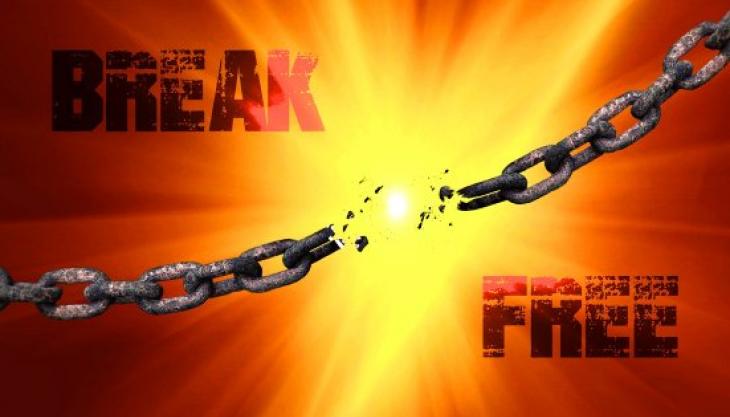Get Out of Student Loan Default – Here’s How
Submitted by Rachel R on Fri, 08/31/2018 - 10:30am

Looking for a solution to student loan default?
Image by Jan Baby via Pixabay
Student loans get more burdensome by the year, and many people struggle to conquer this debt. If you miss one payment, that’s not good. From the first missed payment, you’re considered delinquent. If you keep missing payments for 270 days, you go into default for most types of loans. Federal Family Education Loans (FFEL) go into default after 330 days of non-payment.
Default and delinquency differ drastically. Delinquency triggers phone calls and letters asking you to catch up ASAP. As the delinquency lingers, the calls and letters may get more aggressive and promise worsening outcomes. But once you hit default, that’s when the consequences can wreck your finances for years to come.
Consequences of student loan default
It’s important to know that federal student loans have no statute of limitations. Collectors of student loan debt have awesome powers at their disposal as well. Some of the consequences include:
- The loan is "called in." That means the entire amount immediately becomes due.
- The federal government could garnish your wages.
- Your tax refund can be taken to apply against the student loan debt.
- The government could seize your social security payments.
- If you’re a federal employee, 15% of your pay could be taken to pay the debt.
The federal government has a long reach and more powers to collect debt than any other creditor. Even more disturbing is that most people take out student loans when they’re still in their teens or early 20s, have no idea what this type of debt means, and don’t know if they’ll be able to repay it.
Student loan debt is also the only type of debt that you’re allowed to borrow without proving you can afford it. You can take out $50k (or more) in debt for a degree where you might not be able to find a job or where you will earn too-low a salary to repay the loans.
How to get out of student loan default
For consumers in student loan default, curing the situation can stop the unpleasant side effects, but how can you clear up a default? The US Department of Education (DoE) offers three ways to get out student loan default:
- Loan rehabilitation – Contact the DoE and set up a payment plan and then make 9 of 10 consecutive monthly payments on time.
- Loan consolidation – Consolidate all your federal student loans into one. This will also allow you to get on an income-driven plan. But consolidation is a one-shot deal.
- Full payment – Paying the DoE in full by writing a check for the balance owed will stop the default, but that’s entirely rare.
Paying in full isn’t feasible for most people. If you could afford it, you wouldn’t be in default already. Rehabilitation and consolidation are the best chance to get out of default on student loans. There’s a fourth path to get out of student loan default - filing bankruptcy.
Bankruptcy at student loans
Bankruptcy can help with student loans in a couple of ways. First, you can wipe out unsecured debt like credit cards and medical bills completely. By shedding other debt, you might make enough room in your monthly budget for income-driven repayment.
Second, if you have extenuating circumstances, you might be able to demonstrate undue hardship to have your student loans discharged or reduced in bankruptcy. Your bankruptcy attorney must also file an Adversary Proceeding on your behalf to request relief from the student loans.
Your lawyer will have to show the court that should you be forced to repay your student loans - you won’t be able to maintain a reasonable standard of living. That equates to “undue hardship” and can trigger lessening or total discharge of your student loans.
To find out more about undue hardship and college debt, read reviews from our clients then call +1-833-627-0115. Contact the Law Offices of John T. Orcutt to schedule a free student loan bankruptcy consultation at one of our locations in Raleigh, Durham, Fayetteville, Wilson, Greensboro or Wilmington.
Debts Hurt! Got debt? Need help? Get started below!
Serving All of North Carolina
- Bankruptcy Attorneys Raleigh NC (North)
- Bankruptcy Attorney Fayetteville NC
- Bankruptcy Attorney Durham NC
- Bankruptcy Attorneys Wilson NC
- Bankruptcy Attorneys Greensboro NC
- Bankruptcy Attorneys Southport NC
- Bankruptcy Attorneys Wilmington NC
Bankruptcy Attorneys Raleigh NC (North)
6616 Six Forks Rd #203 Raleigh, NC 27615 North Carolina
Tel: (919) 847-9750

Bankruptcy Attorney Fayetteville NC
2711 Breezewood Ave Fayetteville, NC 28303 North Carolina
Tel: (910) 323-2972

Bankruptcy Attorney Durham NC
1738 Hillandale Rd Suite D Durham, NC 27705 North Carolina
Tel: (919) 286-1695


Bankruptcy Attorneys Greensboro NC
2100 W Cornwallis Dr. STE O Greensboro, NC 27408 North Carolina
Tel: (336) 542-5993

Bankruptcy Attorneys Southport NC
116 N Howe St. Suite A Southport, NC 28461 North Carolina
Tel: (910) 218-8682

Bankruptcy Attorneys Wilmington NC
116 N. Howe Street, Suite A Southport, NC 28461 North Carolina
Tel: (910) 447-2987
